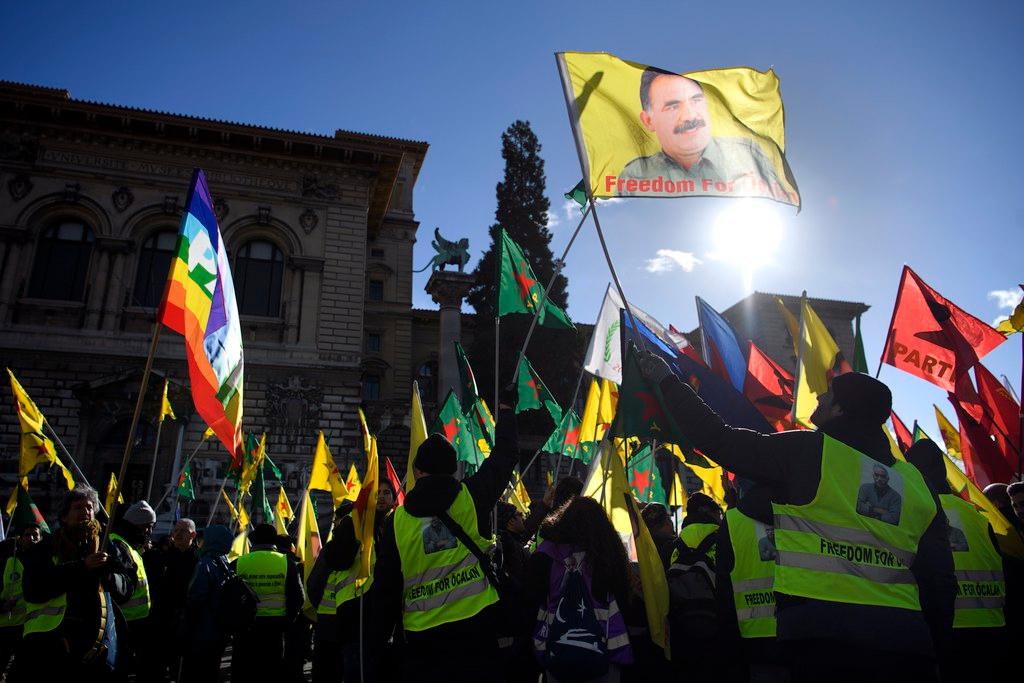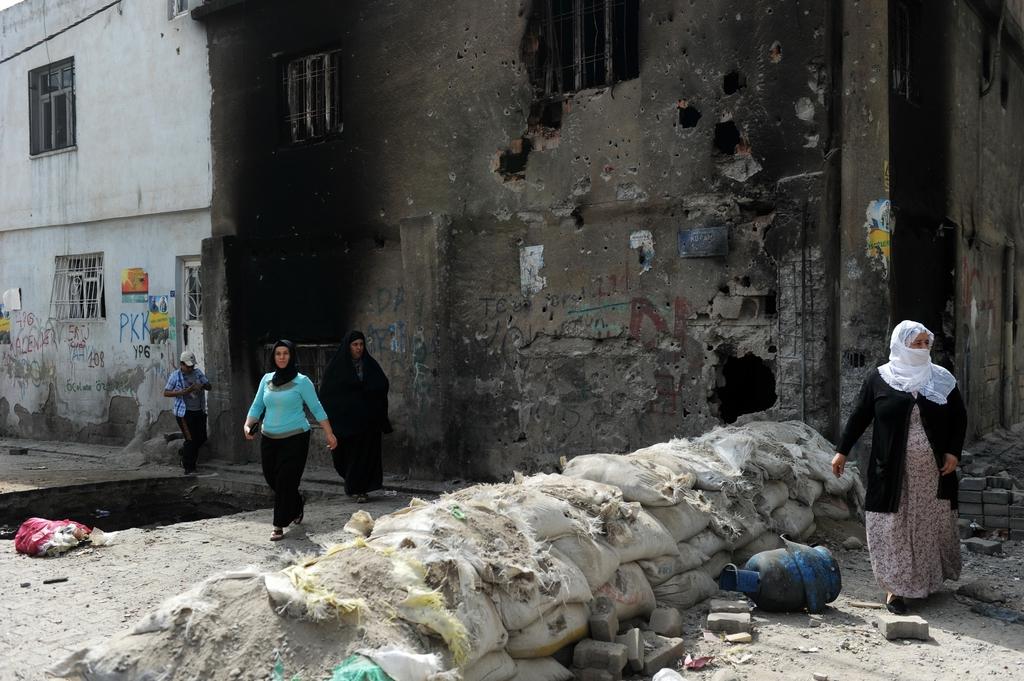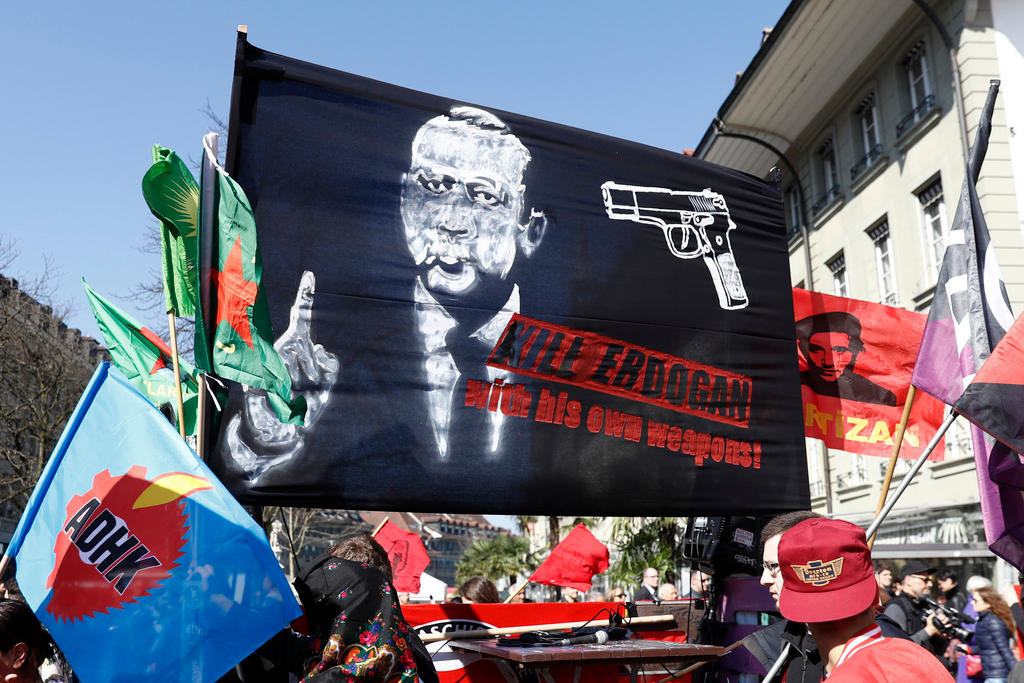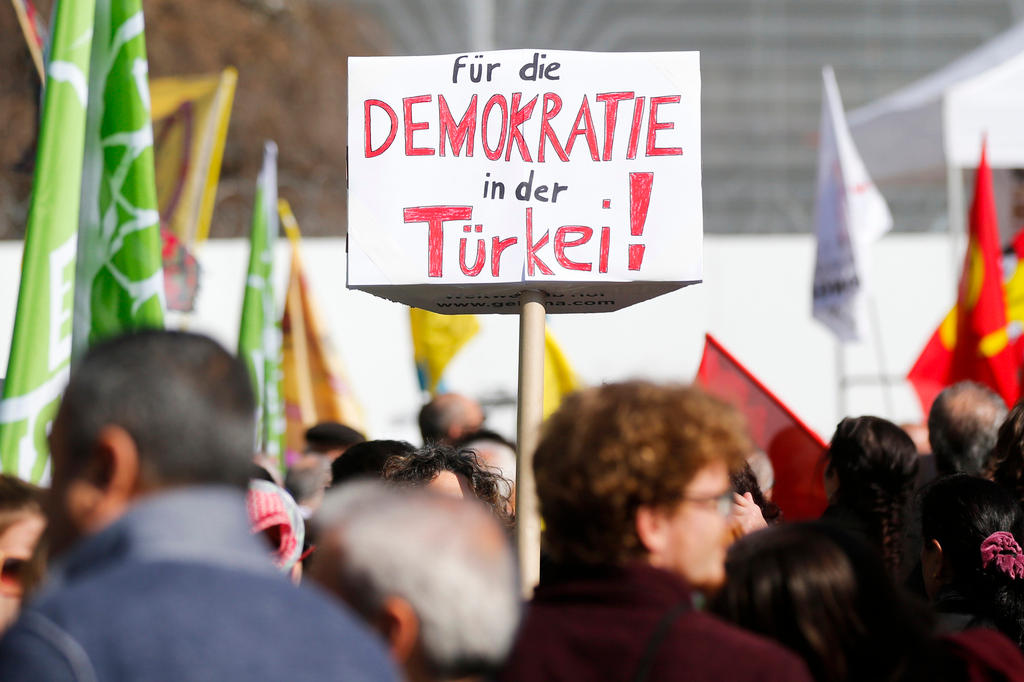Over 1,000 Kurds march in protest from Lausanne to Geneva

Around 1,200 Kurds began a protest march in Lausanne on Monday against the Turkish bombing of Afrine, a Kurdish enclave in Syria. The group will walk in several stages to Geneva, where they plan a demonstration in front of the UN Palais des Nations.
The protesters initially gathered in the centre of Lausanne, before moving to the lakeside port of Ouchy, where the official march began.
Their starting point was the Palais de Rumine, where the Treaty of Lausanne was signed in 1923. The treaty established the borders for modern Turkey, ending the Kurdish people’s aspiration of having their own state.
The participants are protesting against the bombing of the Kurdish enclave of Afrine in Syria, an offensive that began on January 20. Approximately 150 civilians have been killed in the area by the bombing campaign, the organising committee said.
The protesters called on the international community to demand the respect of human rights in the region. The UN needs to stand together to prevent a massacre, the protesters said.
Most of the marchers travelled from within Switzerland, but the group consisted of nationalities from 17 different countries.
The next stop for the march is Morges, where they plan to arrive on Monday evening. They expect to reach Geneva on Thursday, before organising a demonstration in front of the UN on Friday.
Foreign Affairs Ministry ‘alarmed’
In a statementExternal link released on Monday, Switzerland’s Foreign Affairs Ministry said it is “monitoring with concern” the violence in Syria and its potential to spread to neighbouring countries, adding that it “strongly condemns” attacks on civilians. The ministry called on all involved in the conflict comply with international and humanitarian laws, and to respect human rights.

In compliance with the JTI standards
More: SWI swissinfo.ch certified by the Journalism Trust Initiative




You can find an overview of ongoing debates with our journalists here. Please join us!
If you want to start a conversation about a topic raised in this article or want to report factual errors, email us at english@swissinfo.ch.